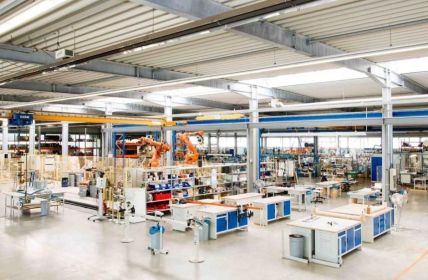In order to meet the challenges of digital transformation and artificial intelligence in medical technology, a study examined ways to strengthen supply chains. The study presents various solution approaches that can support companies in making their supply chains more effective while meeting the requirements for safety, quality and delivery time. Both technological aspects, such as the use of robotics and intelligent algorithms, and organisational measures are considered.
Table of Contents: What awaits you in this article
How does the medical technology industry respond to supply chain challenges? New insights from a recent study
The medical technology industry occupies a prominent position in healthcare and improving the quality of life of sick people. Nevertheless, companies in this industry are confronted with various challenges in their supply chain. How does the industry deal with these challenges? What role does digitalisation play in supporting the supply chain? To find answers to these questions, the FIR at RWTH Aachen University and the software company INFORM have launched a joint study. The aim of this study is to identify the levers for a sustainable and resilient supply chain in medical technology in the future.
Explore with us: Invitation to actively participate in the study
Manufacturing companies that are active in the medical technology industry, particularly in the areas of supply chain, production and purchasing, are cordially invited to participate in this groundbreaking study. The main objective is to obtain essential findings by the end of the year and to publish them in order to give companies impulses for the further development of their supply chain.
Gaining new perspectives: Data collection and creative workshop combined
Data collection for this study will take place through two-hour individual interviews with the researchers of the FIR and the Center Integrated Business Applications (CIBA). This will be followed by a half-day interactive workshop to further explore the findings. The interview phase will start in June and end during the third quarter. Participation in the study is free of charge and all contributors will receive a free report in which the results will be presented anonymously and scientifically processed.
Positive balance: the benefits of the study
Participants in this study have the unique opportunity to comprehensively record the current state of digitalisation in the medical technology industry. In close cooperation with experts from FIR, CIBA and INFORM, current trends and challenges will be jointly identified in order to develop effective solutions based on them. In particular, the use of artificial intelligence and modern software solutions plays a crucial role in identifying disruptions in the supply chains at an early stage or even avoiding them completely.
Partnership for progress: How research and industry open up new horizons together
The study attaches great importance to the intensive cooperation between research and industry, as it has a significant influence on ist success. Within the framework of workshops, the participating companies are actively involved in the exchange of findings from the interviews. This close cooperation opens up opportunities to sustainably strengthen and consolidate the stability of supply chains in medical technology.
Measures to increase resilience in medical technology supply chains
Stefan Witwicki, Head of Inventory & Supply Chain at INFORM, focuses on the specific challenges faced by companies in the medical technology industry. Ensuring the digitalisation and resilience of supply chains is crucial to guaranteeing patient care security while achieving strategic business goals and ensuring compliance with mandatory regulations. The planned study will help develop tailored solutions to address these challenges and sustainably stabilise medical technology supply chains.
This study represents a significant step towards strengthening the supply chains in medical technology and aims to specifically lead the industry into a digital future. By using artificial intelligence and advanced software solutions, companies can react to possible disruptions in the supply chains at an early stage and thus ensure the continuous care of patients. Close cooperation between research and industry plays a decisive role here in order to jointly develop solutions and sustainably improve the supply chain in medical technology.














